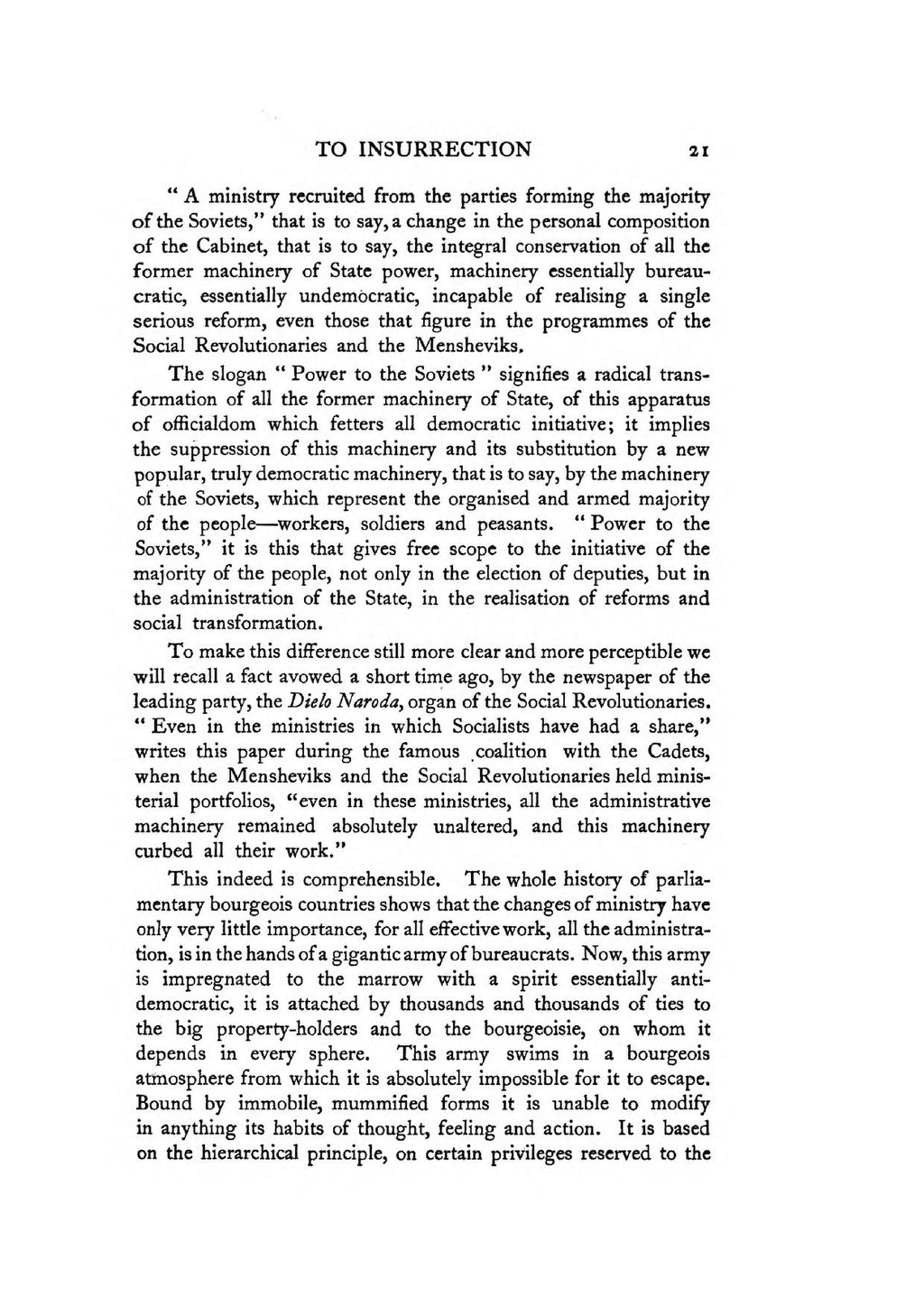"A ministry recruited from the parties forming the majority of the Soviets," that is to say, a change in the personal composition of the Cabinet, that is to say, the integral conservation of all the former machinery of State power, machinery essentially bureaucratic, essentially undemocratic, incapable of realising a single serious reform, even those that figure in the programmes of the Social Revolutionaries and the Mensheviks.
The slogan "Power to the Soviets" signifies a radical transformation of all the former machinery of State, of this apparatus of officialdom which fetters all democratic initiative; it implies the suppression of this machinery and its substitution by a new popular, truly democratic machinery, that is to say, by the machinery of the Soviets, which represent the organised and armed majority of the people—workers, soldiers and peasants. "Power to the Soviets," it is this that gives free scope to the initiative of the majority of the people, not only in the election of deputies, but in the administration of the State, in the realisation of reforms and social transformation.
To make this difference still more clear and more perceptible we will recall a fact avowed a short time ago, by the newspaper of the leading party, the Dielo Naroda, organ of the Social Revolutionaries. "Even in the ministries in which Socialists have had a share," writes this paper during the famous coalition with the Cadets, when the Mensheviks and the Social Revolutionaries held ministerial portfolios, "even in these ministries, all the administrative machinery remained absolutely unaltered, and this machinery curbed all their work."
This indeed is comprehensible. The whole history of parliamentary bourgeois countries shows that the changes of ministry have only very little importance, for all effective work, all the administration, is in the hands of a gigantic army of bureaucrats. Now, this army is impregnated to the marrow with a spirit essentially anti-democratic, it is attached by thousands and thousands of ties to the big property-holders and to the bourgeoisie, on whom it depends in every sphere. This army swims in a bourgeois atmosphere from which it is absolutely impossible for it to escape. Bound by immobile, mummified forms it is unable to modify in anything its habits of thought, feeling and action. It is based on the hierarchical principle, on certain privileges reserved to the
